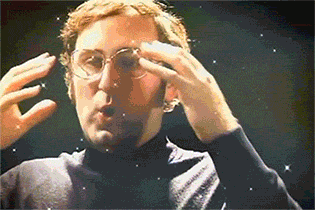Ok, here I'm getting a bit more worried. It's not that I don't think this is helpful. But I do think it's skipping some possible better, more human solutions.
One concern: the premise here is that comprehension struggles are mostly questions requiring answers rather than discursive situations requiring more interaction. A second related concern: is the ultimate goal of "learning" to get the answer or to acquire facility with that discursive process? (Answer: the latter.)
I think simple social annotation, perhaps backed by some AI, could go a long way here. Allow students to ask questions, answer each others questions, and surface those questions and answers in a useful way to teachers...


